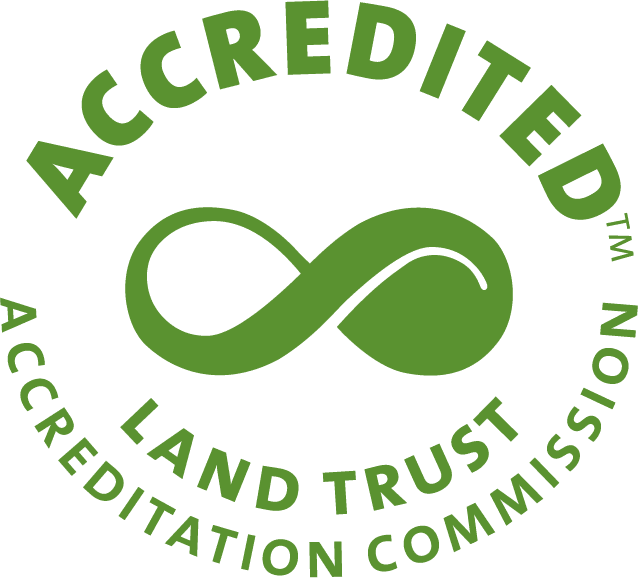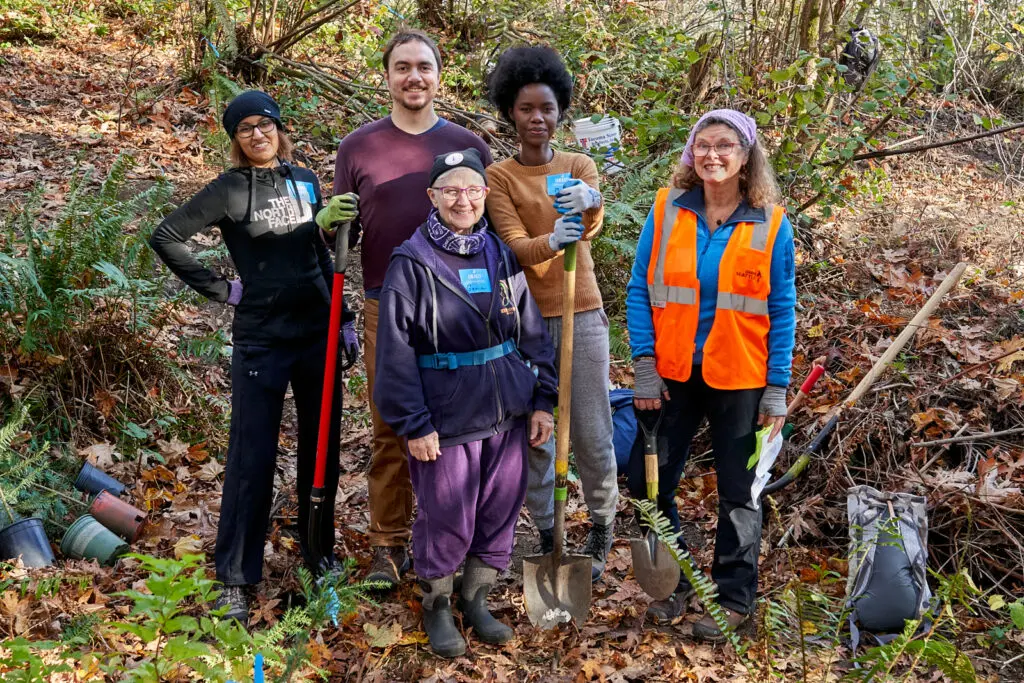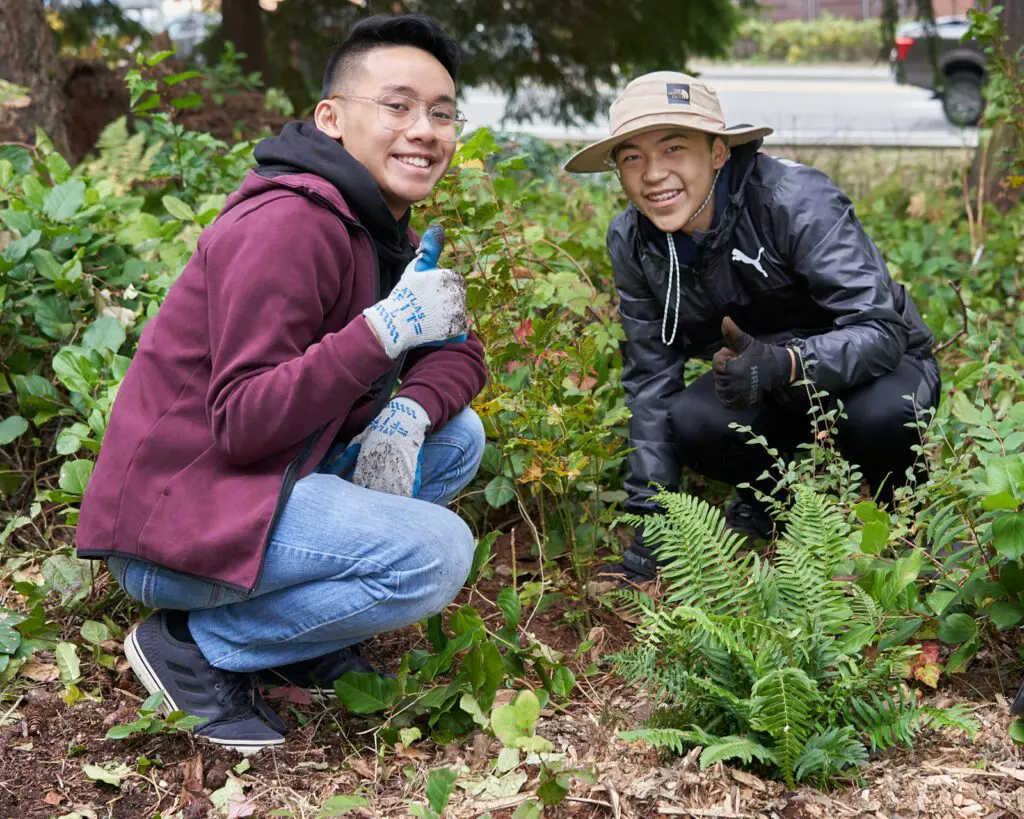By protecting lands close to home, we are able to improve our quality of life and the health of local communities.
EVERGREEN Restoration Program
Tackling a global problem through local action.
Together with corporate and nonprofit partners, field partners, and volunteers, Forterra’s Evergreen Restoration Program plants native trees and plants around Puget Sound that improve our region’s resilience against climate change.
Your assistance helps Forterra fight against climate change, save critical habitats for plants and animals, while providing greater access to clean water, fresh air, nutritious food and natural areas. We invite you to join us.
Get Involved today


Invest in Change: Direct Impact
Fund Community Restoration Grants:
Support community-driven solutions to maximize social and environmental equity in restoration projects.
Fund trees for field partners:
Site preparation with invasive plant removal, and a tree replanting protocol. Tree planting includes monitoring and tree replanting protocol.
Fund a crew:
Support critical restoration tasks volunteers cannot do like using herbicide to remove noxious weeds.
On the Ground: Employee Engagement
Explore:
Learn more about Forterra’s role in preserving land, the importance of ecological restoration, through Lunch and Learns or a project Field Trip.
Get engaged:
Join in a Restoration Field Day or work party and actively participate in ecological stewardship of a project or a Restoration Field Day and work project.




Adopt an Acre
This Program restores land in multiple phases.
Phase 1: Site Preparation: We will address noxious weeds that harm ecosystems and threaten native plant species.
Phase 2: Planting and Mulching: On sites with noxious weeds removed we will Plant based on site conditions, ecosystem types, and climate resilience.
Phase 3: Plant Establishment: Ongoing invasive removal, mulching, and other maintenance to support native plant growth.
Phase 4: Monitoring and Site Support: Monitoring allows us to track progress and re-plant or re-enroll if needed based on several factors such as native plant density, and invasive species present.
About the Evergreen Restoration Program
Forterra’s Evergreen Restoration Program plants and maintains trees for carbon sequestration in cities and rural lands throughout Western Washington. Tree planting is part of comprehensive habitat restoration efforts, so these actions not only mitigate the effects of carbon pollution but also help develop healthy, resilient forested parks and natural areas for future generations. We plant trees on lands we own or steward with our partners and provide trees to local stewardship organizations for their restoration efforts. Calculate your Carbon
Your support can make a world of difference
Sequestering
tons of CO2
Planting
Trees
Partnering
with Forterra
Protecting
Planting Sites
Building Strong
Communities


Invest in Evergreen Restoration:
Grow Your Corporate Impact
Partner with Forterra to amplify your corporate responsibility efforts through our Evergreen Restoration Program. Reach out to restoration@forterra.org to explore collaboration opportunities today.
this is how we get it done
Local action to address a growing problem
Forterra created Evergreen Restoration Program (ERP) to provide local options to help address climate change. In addition to sequestering carbon, healthy local forests provide many other environmental and health benefits such as improving air quality, reducing soil erosion and water pollution, cooling cities and dampening noise pollution, recharging groundwater and sustaining stream flows, providing native wildlife habitat and outdoor recreation and reducing stormwater impacts.
Making change in the
region we love
Together with corporate and nonprofit partners, field partners, and volunteers, Forterra’s Evergreen Restoration Program plants native trees and plants around the Puget Sound, that improve our region’s resiliency against climate change.
Natural Climate Solutions
Forest Layers
Invasive Species Management
Monitoring and Site Maintenance
Plant Diversity
Empower Environmental Leadership:
Join Forces with Forterra


Stand out as a leader in sustainability – Demonstrate your commitment to preserving natural ecosystems while fostering a greener future.
Contact us at restoration@forterra.org to discuss how your corporation
asked
questions
Forterra’s Evergreen Carbon Capture (ECC) program is becoming less relevant with the evolving climate markets. With the Evergreen Restoration program, we are shifting from carbon mitigation to embracing a holistic approach to ecological restoration. This means we are addressing invasive species, multiple ecosystem types, and all layers of the forest.
We will continue to use the ECC Webmap and ECC Annual Report to measure our impact.
For every ERP Specific restoration event hosted by Forterra, we will assess the following where applicable: number of trees, shrubs, and ground cover planted, mulch spread, specific invasive species removed (such as English ivy, Himalayan blackberry), and invasive species cover before and after.
We will follow Best Management Practices laid out by King County Noxious Weeds here.
Over the next 100 years, the trees planted in Forterra’s Evergreen Capture Program will…
1. Create 28 football fields of tree canopy
2. Absorb 9350 tons of CO2
3. Intercept 183004387.4 Gallons of Rainfall
4. Stop 244621103.1 Gallons of Runoff
5. Tons of O3 Removed: 37.835215
6. Tons of NO2 Removed: 26.795195
7. Tons of SO2 Removed: 1.507305
8. Tons of PM2.5 Removed: 2.921534
Additionally, did you know that spending just 20 minutes in nature can significantly lower stress hormones? The Evergreen Restoration Program also offers other benefits, such as providing wildlife habitat and erosion control, which are challenging to quantify but equally important.”
Partners








































































Drive Positive Change
with Forterra
Let’s shape a greener tomorrow and build a legacy of environmental stewardship.
Email us at restoration@forterra.org and be part of the solution today!



